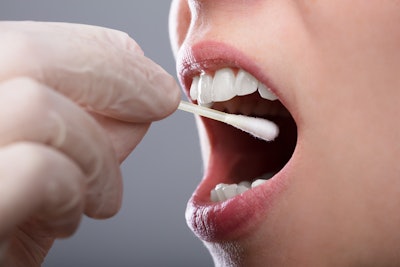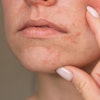
HPV, cervical cancer (CC), or pregnancy terminations may alter women's vaginal and oral microbial communities, suggesting that oral biomarkers may aid in screening for these conditions. The study was published recently in the Journal of Translational Medicine.
It is believed to be the first study to investigate the oral microbiome's role in patients with cervical cancer, the authors wrote.
"In the future, it is expected to screen cervical cancer through oral flora markers," wrote the authors, led by Wei Zhang of the First School of Clinical Medicine of Lanzhou University in China (J Transl Med, April 29, 2024, Vol. 22, 396).
For the study, samples were taken from the vaginal tract and oral subgingival plaque of 82 women. The participants were divided into four groups: the control group (Z/KZ), the pregnancy termination group (AB/KAB), the HPV-infected group (HP/KHP), and the cervical cancer group (CC/KCC). Microbiota analysis was conducted using full-length 16S rDNA gene sequencing.
The vaginal bacterial community in the Z and AB groups showed a relatively simple structure dominated by Lactobacillus. However, the CC group exhibited high abundances of anaerobic bacteria and greater alpha diversity.
Furthermore, correlations were found between elevated blood C-reactive protein (CRP) levels and local/systemic inflammation, pregnancy, childbirth, and abortion, which contributed to imbalances in the vaginal microenvironment. The altered microbial diversity in the CC group was confirmed by amino acid metabolism, according to the results.
Oral microbial diversity showed an inverse pattern compared to the vaginal microbiome, suggesting a unique relationship. The microbial diversity of the KCC group was notably lower than that of the KZ group, indicating a connection between oral health and cancer development, they wrote.
Also, periodontal pathogens were linked to blood CRP levels and oral hygiene conditions. Elevated oral microbial amino acid metabolism in the CC group was closely tied to pathogens. Positive correlations suggested a synergistic relationship between vaginal and oral bacteria, they added.
However, the study had limitations, including its small sample size. Larger prospective cohort studies with long-term follow-up are needed to confirm the observed relationships, they wrote.
"To our knowledge, this is the first study to explore the role of the oral microbiome in patients with CC, improving the accuracy of the CC screening process and broadening the scope of universal screening through insights gained from changes in the oral microbiome," they wrote.




















